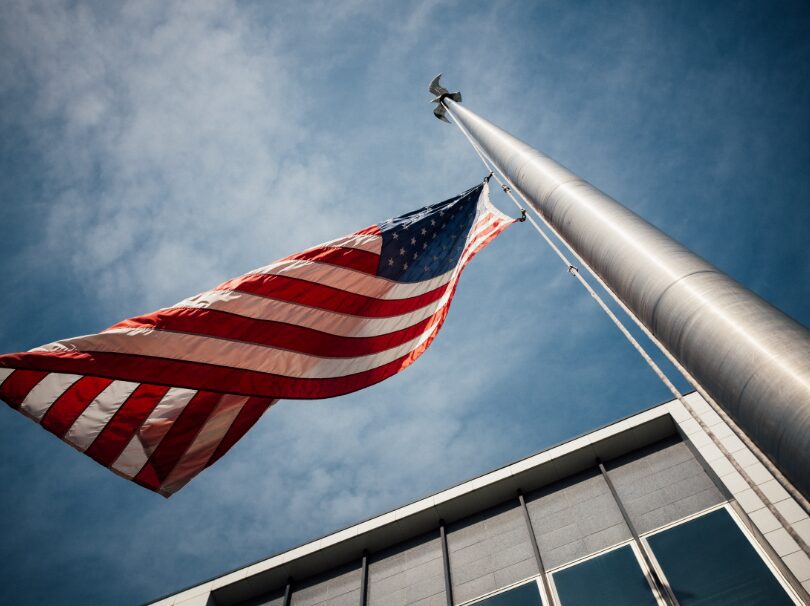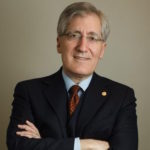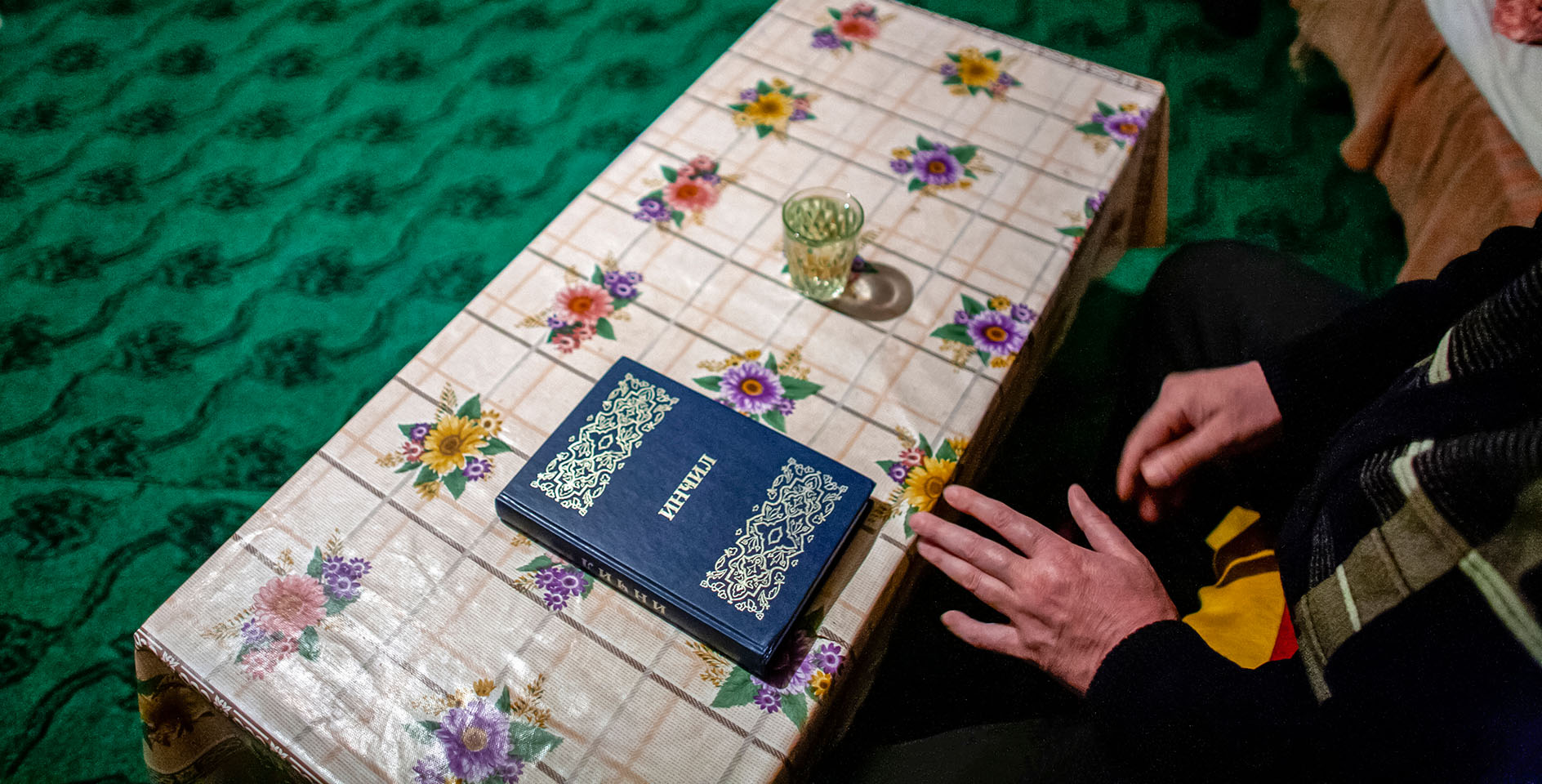Editor’s Note: This week, we’ll be running a three-part interview series featuring Robert P. George, McCormick Professor of Jurisprudence at Princeton University. A 2009 New York Times profile labeled him the “country’s most influential conservative Christian thinker.” He’s the author of such works as Conscience and Its Enemies: Confronting the Dogmas of Liberal Secularism; and Clash of Orthodoxies: Law, Religion, and Morality in Crisis, both necessary guides for discerning our times. Though I’ve never had the privilege of studying with him formally, Robert George has been an academic mentor to me from afar, one whose thinking has been immeasurably impactful.
ATW: It seems increasingly likely that the Supreme Court is being primed to decide whether same-sex marriage is a constitutional right. On the assumption that the Supreme Court errs in its ruling and fiats same-sex marriage across the nation, what becomes of the pro-family movement, or what are our next steps? Should religious conservatives accept living as outsiders within our own country?
RPG: Well, one already sees religious freedom and the rights of conscience being attacked in the name of “anti-discrimination” principles. So this is not going to be easy. The days of comfortable Christianity in the United States are over. It is going to be uncomfortable to be a Christian—increasingly so. We’re going to get a little taste of what Jesus meant when he said that to be his disciple one must take up one’s cross and follow him. We’ll see how many self-described Christians are going to be willing to pay the price—usually a non-financial one—Jesus had in mind when he told the rich young man to “go and sell what you have, and give to the poor, and come and follow me.” I suspect that a lot of Christians will be like that young man who, as you recall, “went away sad, for he had many possessions.” They will not be willing to place at risk reputation, social standing, professional opportunities, and the like in order to bear witness and remain faithful to Christ. We Christians and our fellow believers are already being labeled as “bigots” and “homophobes”; the next step will involve outright discrimination and the imposition of disabilities in domains such as employment, licensing, accreditation of institutions, and government contracting. This is going to be rough sailing.
But let me quote two men who were great friends and, as it happens, both dear friends of mine.
Chuck Colson: “Stay at your post and do your duty.”
Richard John Neuhaus: “Never weary, never rest. Stay ever faithful and trust God for the victory.”
My message is the same: Stay strong. Stay faithful. Bear witness. Do not yield. Remain on the field of battle. Organize. Cooperate. Encourage one another. Fight in the domain of ideas. Fight in the arena of politics. Fight in every nook and cranny of the culture.
And, as Fr. Neuhaus said, “trust God for the victory”—which will come on His terms and in His time.
ATW: At present, religious conservatives have their backs against the wall. What gives you hope or optimism about the future?
RPG: That’s an easy question. First, Christ won the victory on Calvary. So we know how the story ultimately ends—and it is not with a victory for the devil over the dignity of human beings and the great principles of morality and justice that protect human dignity. Second, how can I not have hope when I think of the courage and brilliance of those young people we discussed earlier—hundreds of them even in the small pool of my own students at Princeton and Harvard?
ATW: You’ve been an advocate for Natural Law ethics in your academic career. Many protestant Christians see the value of Natural Law, but view its efficacy with suspicion—that man’s capacity for honest and rational thinking has been corrupted by sin. What would you say to protestant thinkers that would accuse Natural Lawyers as having an anthropology that’s too optimistic?
RPG: I think the Augustinianism that is so strongly felt in the Protestant community is a healthy thing. In the end, our hope is in Jesus, not in any mere human power, including the power of reason. One of my favorite hymns beautifully captures the basic thought:
I’d rather have Jesus than silver or gold;
I’d rather have Him, than riches untold.
I’d rather have Jesus, than houses or land;
I’d rather be led by His nail-scarred hands.
Than to be the King of a vast domain,
And be held in sin’s dread sway.
I’d rather have Jesus than anything
This world affords today.
So Jesus is the alpha and the omega; the beginning and the end. But God has shared with us the gift of intellect. And, in my judgment, he desires and expects us to use it—not only to defend truths that are revealed in sacred scripture, but to more deeply understand those truths and to ascertain truths that are not themselves among the data of revelation. Now, this is not to deny that reason, like everything else about us, has been damaged by the fall. That tragedy results not only in the weakening of the will, but in the darkening of the intellect as well. So it is folly, not to mention hubris, to suppose one can rely on one’s own wits to figure out all the important existential truths. Fortunately, God has seen fit to give us the Bible and the Church as our guides.
To my mind, the primary role of the Christian intellectual, including the natural law theorist, is to assist the Church in the project of proclaiming the Gospel by clarifying and deepening our understanding of saving truths—such as the truth about marriage as a one-flesh union. This is a good example of how the philosopher—and in particular the natural law theorist—can serve the Church. Apart from careful philosophical—natural law—analysis, one might be tempted to interpret the reference in Genesis 2 to marriage as a one-flesh union as some type of metaphor, something implying an especially intense but merely emotional bond between husband and wife. After all, how can two separate individuals become “one” in a bodily way? But philosophical reasoning enables us to see that such unity is indeed possible, and that what scripture is here proposing is meant literally, not merely metaphorically. Having said all that, the Christian intellectual must also be guided by the Church and submissive to its authority as the mystical body of Christ. The intellectual—of any stripe—who believes in his own infallibility is in grave error and deep trouble.
ATW: A Southern Baptist ethics professor wanted me to ask you: “Do you believe there is an inherent moral limit to ‘rights language’ in the public square.
RPG: Yes. Not every true proposition about morality—or even justice—can be translated meaningfully—or at least not painfully awkwardly—into the language of rights. That doesn’t mean rights language is bad or useless, only that its usefulness is limited.
ATW: Who and what are you reading on a daily basis?
RPG: I spend a lot of time in hotel rooms, and these are wonderful occasions for Bible reading. I make it a habit not to bring my own Bible. Most hotel rooms still have Gideon Bibles in the night table drawers, and when I’m in a hotel that does not allow them to be provided, I make it a point to call down to the main desk and ask why. I want them to know there is a demand. They usually manage to produce a Bible by the way. Recently, I was in a hotel in Washington, D.C. that didn’t have a Bible. Every room had a yoga mat, though.
I am a faithful reader of quite a few periodicals—First Things, Touchstone, National Review, the Weekly Standard, National Affairs, Commentary, the Times Literary Supplement, the New Criterion, Human Life Review, Foreign Affairs, the American Interest, the Atlantic. I love British and American literature, so I often have a novel going. It might be anything from Jane Austen to Evelyn Waugh. I like biographies, too. Because I serve on a number of boards and am chairing the U.S. Commission on International Religious Freedom, I have lots of reports to get through—I’ll confess that reports are not my favorite reading.
ATW: Do you have any book projects in the works?
RPG: Patrick Lee and I will soon have a book out on the philosophy of marriage entitled Conjugal Union. It is being published by Cambridge University Press.
ATW: If you could build your “perfect day,” what does Robby George do to unwind and relax?
RPG: Play the banjo. Then after doing that for a while, I’ll pick up a guitar and do my best Merle Travis, Chet Atkins, and Jerry Reed impersonations. If I’ve got a picking partner or two, I might spend a little time on the mandolin. I grew up in the hills and hollows of West Virginia, so Appalachian classical music (which you might know as “bluegrass”) is part of who I am. I might then fire up YouTube on my computer and listen to some old fashioned Nashville or Bakersfield country music. If I find a video of an especially good performance (by, say, Porter Waggoner or Kitty Wells) I’ll send the link to my pal Russell Moore. He’s a true connoisseur and my musical soulmate.
To read part one, click here; part two, click here.
Robert George
Robert P. George is the McCormick Professor of Jurisprudence and Director of the James Madison Program in American Ideals and Institutions at Princeton University. He has served as a presidential appointee to the United States Commission on Civil Rights and as a member of the President’s Council on Bioethics. You can find him on twitter at @McCormickProf.










